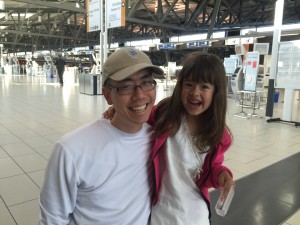 My daughter, Macy, is now seven years old.
My daughter, Macy, is now seven years old.
We live in Ottawa, Canada.
When it’s hot, we don’t think twice about drinking water from the tap. In fact, we have so much clean water in our community that during the summer, we can afford to play in splashpads across the city.
Macy goes to school in a classroom where the sound of a rain storm beating down on the roof doesn’t drown out the sound of her teacher. On a sunny day, her classroom doesn’t have a thin metal roof which absorbs heat to become an oven. She is learning to read and write and is excited to go to school.
When my daughter is sick, we can go to the local pharmacy and buy over the counter medicine like acetaminophen or Ibuprofen to drop her fever. If it’s something more serious, we can go to our doctor or even a hospital, if necessary.
I am confident that my daughter will have opportunities, privileges and support to chase her dreams.
But, in a world with over 7 billion people, not everyone is as lucky. Not everyone has access to clean water, education, and health care. Not everyone feels secure knowing where their next meal is coming from.
Mondana, Ecuador
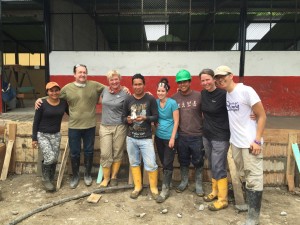 In August, 2015, I had the opportunity to visit Mondana, a small village in the Amazon. Staples Canada ran a teacher appreciation contest and I was one of five lucky teachers selected to go on a Me to We volunteer trip to Ecuador.
In August, 2015, I had the opportunity to visit Mondana, a small village in the Amazon. Staples Canada ran a teacher appreciation contest and I was one of five lucky teachers selected to go on a Me to We volunteer trip to Ecuador.
It was a life changing experience.
- Staples Canada donated $10,000 to help rebuild a school in Ecuador through international charity and partner, Free The Children.
- Staples ran a contest to celebrate teachers who created positive social change in their school or community.
- In addition to their $10,000 donation, Staples paid for five teachers to go to Ecuador to work beside local community members on this Staples-funded school project.
I think a really powerful moment for me was meeting Jessica and working beside her to improve the local school. We mixed concrete, shovelled it into wheelbarrows, and used it to rebuild a crumbling wall.
We had a great time learning from each other. I was speaking in basic Spanish, she was speaking in basic English, and we discovered we both have a little girl.
Jessica lives in Mondana. Her daughter will be going to school here. It got me thinking about how my daughter’s life would be different if she was born in Mondana, instead of Ottawa.
Education:
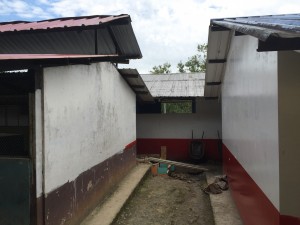
Access to education in Mondana has been improved as a direct result of the donation from Staples. The local school here attracts students from Mondana, as well as the neighbouring communities.
I got to see first hand how a $10,000 donation was used to refurbish 3 attached classrooms in a school building.
- The roof of the school building was completely rebuilt. Before, when it rained, the sound of water on the roof would drown out the teacher completely. (As you can imagine, it rains a lot in the rainforest.) Now, lessons can continue.
- The roof was rebuilt with insulated materials to cool down the classroom. Before, during sunny days, the metal in the roof would absorb all the heat, effectively turning the classroom into an oven. (I’m sure you can also imagine that it’s already pretty hot and humid in the Amazon.)
- Complete concrete walls were built to separate the 3 classrooms. The school building used to be a large open space with smaller wooden partitions separating the space into 3 classrooms. Now, there are proper concrete walls completely dividing the learning spaces.
- The outside concrete wall / sidewalk was fixed. Our team helped to rebuild the outside concrete wall and sidewalk which was crumbling and was a safety risk.
- The window fences and interior support beams were repainted, slowing down rust and damage.
The government apparently assigns teachers to work in remote communities like this one. Although there is one school teacher from Mondana, most school teachers here are assigned from other communities.
Last year, I’m told that 3 teachers quit and left. Hopefully, as a result of this school rehabilitation project, more teachers will choose to stay. Why is refurbishing schools and classrooms important? I’m told that parents may not want to send their students to a poor school and would rather keep them home.
The community felt that fostering a more dignified, positive learning environment would lead to more teacher and student engagement and hopefully help parents and students to see the value of education from the local Mondana school.
In Ecuador, although the country illiteracy rate is 9%, within indigenous groups, it can be around 28.2%. This means that almost a third of indigenous peoples like the Kitchwa in Mondana, in Ecuador cannot read or write.
- The average person in the world goes to school for 7 to 8 years.
- The average person in Ecuador goes to school for 7.3 years.
- However, the average indigenous person in Ecuador goes to school for only 3.3 years. (Source: UNESCO)
As a teacher, education is important to me. When my daughter finishes high school in Ottawa, she will have received 14 years of public education, including JK and SK. She may decide to pursue post-secondary education. If she was born in Mondana, Ecuador, her learning opportunities would be significantly less.
Water:
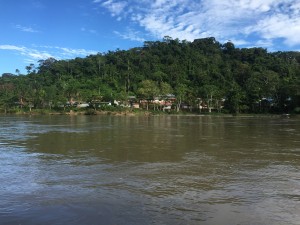 I learned from Free the Children project co-ordinators that access to clean drinking water is a challenge in the region. Mondana is on the Napo River which has been the main source for drinking, cooking, bathing, and cleaning. However, the water quality is compromised by waste from cities, and chemical runoff from mining companies. Waterborne illnesses are a problem.
I learned from Free the Children project co-ordinators that access to clean drinking water is a challenge in the region. Mondana is on the Napo River which has been the main source for drinking, cooking, bathing, and cleaning. However, the water quality is compromised by waste from cities, and chemical runoff from mining companies. Waterborne illnesses are a problem.
We met a local fruit farmer whose daughter died a while ago when she was 13, presumably due to water parasites. Although he took her to the village health clinic, at the time, the basic health care was not enough to save her life.
A few months ago, as a result of Free the Children’s partnership in Mondana, the community now has access to clean drinking water for the first time. Community members worked alongside Free The Children to bury newly constructed water pipes to bring clean water to communal access points throughout the community, hopefully reducing the incidents of waterborne illnesses.
Make a Difference – Together, we can make the world a better place:
Never doubt that a small group of thoughtful, committed individuals can change the world; indeed, it’s the only thing that ever has. – Margaret Mead
There are lots of great causes and organizations out there doing good work, both locally in Ottawa and globally around the world. The need is infinite.
I think it’s important for people to find their passion and to take action. Everyone needs to start somewhere, and this is where I’m starting.
I have two goals:
Goal #1: Fundraise $10,000 for Free the Children
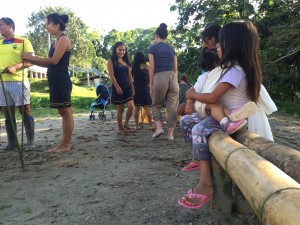 I am trying to raise $10,000 for a Free the Children project in the Amazon in Ecuador by August 2017.
I am trying to raise $10,000 for a Free the Children project in the Amazon in Ecuador by August 2017.
I’m not sure whether the money will go towards improving access to education, health care, water, or food security. The community will prioritize what they would like a helping hand with.
This is not charity. This is a hand up, not a hand out.
It was neat to learn that in any Free the Children project, the community makes the decisions. They identify their needs, prioritize their goals, and then work together locally and with the global community to break the cycle of poverty.
It was also neat to learn that any Free the Children project requires the community to help cover the costs as well – whether it’s in the form of money, sweat equity, or materials.
Goal #2: Bring my family to visit the Amazon and volunteer in the community.
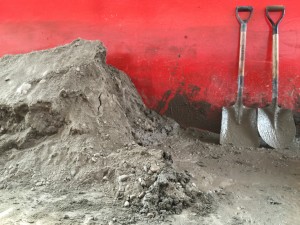 I am scrimping and saving to pay for my family to go to Ecuador in August 2017 on a Me to We volunteer trip. (This is completely separate from our fundraising goal of $10,000 which goes directly to Free The Children.)
I am scrimping and saving to pay for my family to go to Ecuador in August 2017 on a Me to We volunteer trip. (This is completely separate from our fundraising goal of $10,000 which goes directly to Free The Children.)
The Me to We trip was a well run, high end volunteer travel adventure. The guide was fantastic, the Me to We facilitator was knowledgeable, and more importantly, I ate better during my stay at Me to We’s bespoke Minga lodge in the Amazon, than I do when I teach during the school year.
It was a first class experience from beginning to end. Minga Lodge now has electricity 24/7, and I’m told they’re working on getting air conditioning as well.
Although I had mosquito nets around my bed, I gotta admit, the mosquitoes and black flies are much worse camping in Ontario, than during my visit to the Minga Lodge. There were times when it was more hot and humid in Ottawa, than during my experience in the rainforest in the Amazon. I suppose there are more tarantulas in Ecuador, than here, but the creepy crawlies generally stayed off the well maintained path.
I spoke with the Minga lodge staff, and they told me about one couple that brought their two year old and six year olds with them. Another couple came and volunteered during their honeymoon. Heck, even Canadian band Hedley has been to Ecuador with Me to We.
My wife and I aren’t worried about bringing our seven-year old daughter to the jungle. I think this will be a great introduction to traveling with purpose. A lot of learning that you just can’t get from videos and pictures. Plus, I can’t wait for her to play with the kids in Mondana.
Macy and I need your help.
My family lives in Ottawa. Jessica’s family lives in the Amazon.
Although we live in different parts of the world and have very different lives, we both want the best for our kids.
When I trip and fall, I would hope someone was around to give me a helping hand up. I have the ability to help out this community in the Amazon, and so I’m going to try my best.
1. Will you donate money and help us to raise $10,000 to help kids in the Amazon break free from the cycle of poverty.
100% of donations go directly to Free the Children. (Click here to donate directly on the Free the Children website towards our fundraising efforts.) Donations over $10 are eligible for a tax receipt from Free the Children. More information about tax receipts here.
Click here to Donate to Free The Children.
If you donate over $100 to our fundraising goal (and identify your name on the list of project donors, I’ll do my best to bring you back a hand-crafted, fair trade bracelet made by an artisan group in the community. (This of course, depends on us reaching our goal and actually getting over to Ecuador, but it’s the thought that counts.)
2. Will you spread the word of what we are doing and raise awareness about life in the Amazon.
Like us, tweet us, email friends. We have 24 months to fundraise $10,000 and to make a difference.
3. Will you join us in August 2020 in Ecuador? (No, seriously.)
You would have to pay for your own flights and cover the costs of your Me to We volunteer trip, but after helping to fundraise $10,000 for this community, what better way to get involved than to donate a little time and sweat, and work alongside the people you helped out.
Talk with us.